February 5, 2021
Workplace things we have missed, and those we hope to regain
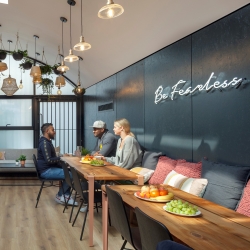 Let’s be honest, work life pre 2020 had its flaws, whilst the longing for variety of scenery, change of pace and even a train journey (somewhere…ANYWHERE) would be welcomed by many of us right now, many of us had become a bit ‘hamster wheel’ in our approach. Commuting was stressful, expensive and time hungry; our natural and individual rhythms squeezed into a set 9-5 schedule and workplace design had become a bit ‘quantity over quality’ – desks have been reducing in size year upon year in order that capacity could be increased. We had reached a point at which everything was ripe for change but there was largely a resistance to both flexible working requests and embracing much of the technological advancements that were already at our fingertips. (more…)
Let’s be honest, work life pre 2020 had its flaws, whilst the longing for variety of scenery, change of pace and even a train journey (somewhere…ANYWHERE) would be welcomed by many of us right now, many of us had become a bit ‘hamster wheel’ in our approach. Commuting was stressful, expensive and time hungry; our natural and individual rhythms squeezed into a set 9-5 schedule and workplace design had become a bit ‘quantity over quality’ – desks have been reducing in size year upon year in order that capacity could be increased. We had reached a point at which everything was ripe for change but there was largely a resistance to both flexible working requests and embracing much of the technological advancements that were already at our fingertips. (more…)





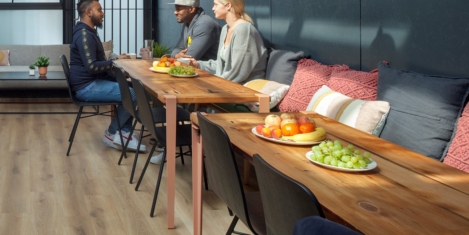

 How good your line manager is makes the difference between an employee coping or struggling in lockdown. But too often line managers’ heroic efforts are not noticed by their employers, claims new report, titled
How good your line manager is makes the difference between an employee coping or struggling in lockdown. But too often line managers’ heroic efforts are not noticed by their employers, claims new report, titled 

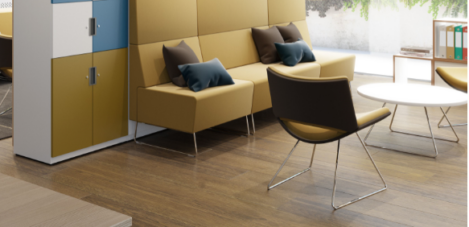
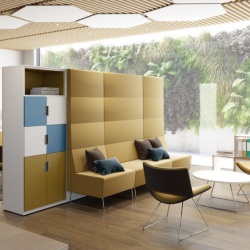 Be by
Be by 
 There’s no question that many people now, feeling the weight of lockdown 3 and with no clear view on the timing of any sort of ‘return to normal’, are finding it tough to stay motivated. Many are burnt out. We can gain some insight into what is going on for many individuals by way of neuroscience, specifically how the brain works and how it copes with changing situations.
There’s no question that many people now, feeling the weight of lockdown 3 and with no clear view on the timing of any sort of ‘return to normal’, are finding it tough to stay motivated. Many are burnt out. We can gain some insight into what is going on for many individuals by way of neuroscience, specifically how the brain works and how it copes with changing situations. 
 Workers in Britain are facing inequality due to a stark difference in employers’ approaches to flexible working, with nearly half (46 percent) of employees saying they do not have flexible working arrangements – such as flexi-time, part-time working, compressed hours or job shares – in their current role. This is according to new research from the
Workers in Britain are facing inequality due to a stark difference in employers’ approaches to flexible working, with nearly half (46 percent) of employees saying they do not have flexible working arrangements – such as flexi-time, part-time working, compressed hours or job shares – in their current role. This is according to new research from the 
 New research from Opinion Matters, commissioned by
New research from Opinion Matters, commissioned by 
 Last year, many organisations were forced overnight to adjust to new ways of working. Digital transformation accelerated, and collaborative activities were recreated virtually. But while teams have adapted functionally to maintain productivity, organisational leaders need to pay special attention to the “intangible” cultural aspects and their overall purpose.
Last year, many organisations were forced overnight to adjust to new ways of working. Digital transformation accelerated, and collaborative activities were recreated virtually. But while teams have adapted functionally to maintain productivity, organisational leaders need to pay special attention to the “intangible” cultural aspects and their overall purpose. 
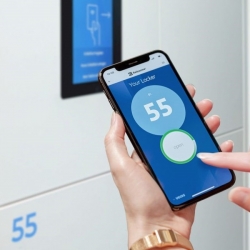 The way in which we work has changed in a way no one would have ever predicted as a result of last year’s pandemic. Consequently, many businesses have chosen to adopt to an agile working practise. This coupled with the rapid evolution of the hybrid workplace has allowed more employees than ever the flexibility to work from home, many people however still crave that interaction with colleagues, and the ‘corridor conversations’ that cannot be replicated via Zoom and can only happen with workplace collaboration.
The way in which we work has changed in a way no one would have ever predicted as a result of last year’s pandemic. Consequently, many businesses have chosen to adopt to an agile working practise. This coupled with the rapid evolution of the hybrid workplace has allowed more employees than ever the flexibility to work from home, many people however still crave that interaction with colleagues, and the ‘corridor conversations’ that cannot be replicated via Zoom and can only happen with workplace collaboration. 
 A review of research in organisational and workplace psychology conducted by an international team of academics claims that working from home has been more disruptive for women than men. The review paper, entitled
A review of research in organisational and workplace psychology conducted by an international team of academics claims that working from home has been more disruptive for women than men. The review paper, entitled 
 As the world prepares to close the book on the unprecedented events of 2020 and looks ahead to 2021 with renewed hope and optimism, global research from
As the world prepares to close the book on the unprecedented events of 2020 and looks ahead to 2021 with renewed hope and optimism, global research from 







February 16, 2021
We must seize the chance to go full circle on sustainable office design
by Joanna Knight • Comment, Environment, JK